
The associate chief medical officer at Michigan State University highlighted advances in neuromuscular disease, emerging therapeutic strategies, and the growing role of patient-reported outcomes at AANEM 2025. [WATCH TIME: 2 minutes]

The associate chief medical officer at Michigan State University highlighted advances in neuromuscular disease, emerging therapeutic strategies, and the growing role of patient-reported outcomes at AANEM 2025. [WATCH TIME: 2 minutes]

The consultant neurologist at the National Neuroscience Institute discussed how artificial intelligence, biomarker development, and drug repurposing can help improve patient care in ALS. [WATCH TIME: 4 minutes]
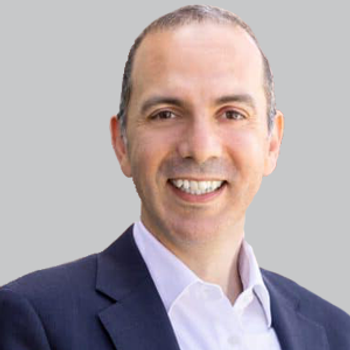
KYV-101 shows promising efficacy in treating generalized myasthenia gravis, offering hope for durable remission through innovative CAR T-cell therapy.

Naji Gehchan, MD, MSc, chief medical and development officer Kyverna, discussed how KYV-101 may redefine generalized myasthenia gravis care through deep B-cell depletion and durable, drug-free remission.
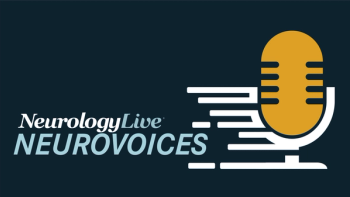
The associate professor of physical medicine and rehabilitation at Virginia Commonwealth University discussed his passion for educating others about electrodiagnosis and ultrasound in neuromuscular disorders.
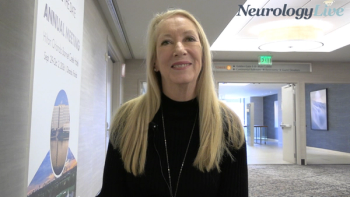
The neuroscience program coordinator at Loyola University Medical Center talked about a recent global nurse survey for those caring for patients with generalized myasthenia gravis. [WATCH TIME: 5 minutes]

A phase 3 study evaluates remibrutinib's safety and efficacy for generalized myasthenia gravis, promising new treatment options for patients.

A phase 1/2 trial explores YTB323, a CAR T cell therapy, for treating generalized myasthenia gravis, aiming to enhance patient outcomes and safety.

A phase 3 study will evaluate iptacopan's efficacy in treating generalized myasthenia gravis, focusing on daily living activities and safety outcomes.
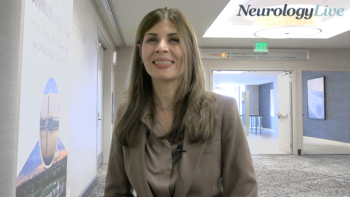
The associate professor of clinical neurology at Keck Medicine of USC discussed advancements in therapeutics, the growing focus on biomarkers, and ongoing challenges in myasthenia gravis. [WATCH TIME: 4 minutes]
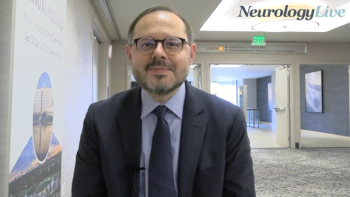
The associate professor of neurology at Yale School of Medicine discussed 52-week data from the phase 3 MINT trial of inebilizumab in patients with generalized myasthenia gravis. [WATCH TIME: 5 minutes]
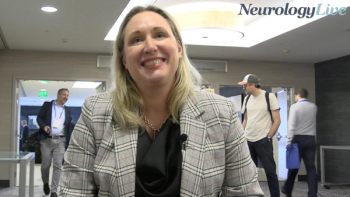
The head of Rare Diseases US at UCB talked about the company’s latest data on rozanolixizumab and zilucoplan in patients living with generalized myasthenia gravis. [WATCH TIME: 3 minutes]

Test your neurology knowledge with NeurologyLive®'s weekly quiz series, featuring questions on a variety of clinical and historical neurology topics. This week's topic is on the 2025 AANEM Annual Meeting!

A groundbreaking trial compares nipocalimab and efgartigimod for treating generalized myasthenia gravis, promising new insights for patient care.

A perspective model aimed noted that introducing efgartigimod alfa for patients with chronic inflammatory demyelinating polyneuropathy incurs more expected costs.

Patients with generalized myasthenia gravis reported a positive experience with rozanolixizumab self-administration, with a preference for the manual push method.

An open-label extension trial testing the efficacy of nipocalimab in patients transitioning from placebo revealed continued improvement in MG-Activities of Daily Living scores over a long-term period.

Data showed that efgartigimod led to greater improvements in disease activity compared with placebo in idiopathic inflammatory myopathy, and improvements in seronegative myasthenia gravis.

An analysis of the first 110 patients screened for the ARISE study showed that an independent adjudication committee confirmed the diagnosis of CIDP in nearly 3-quarters of cases.

Rachana K. Gandhi Mehta, MBBS, an assistant professor of neurology at Wake Forest School of Medicine, discussed a new, innovative trial assessing the therapeutic potential of self-administered subcutaneous rozanolixizumab as a treatment for myasthenia gravis.

These results highlight the age range and ambulation status for which viltolarsen is a key treatment option for DMD patients amenable to exon 53 skipping.

The study, presented at the 2024 AANEM) Annual Meeting, evaluated 52 patients who underwent surgery for carpal tunnel syndrome and explored the comparative effectiveness of the Conway and Zeidman scales in predicting patient outcomes.

The multicenter, 24-week study will feature 20 patients with MG, testing changes on MG-ADL as well as several other secondary outcomes, including patient-reported assessments.

Overall, subcutaneous efgartigimod was safe and effective in patients with seropositive MG, demonstrated by consistent improvements in Myasthenia Gravis-Activites of Daily Living.

For more than a 2-year treatment period, 95% of patients reported taking at least 95% of their daily medications with zilucoplan.
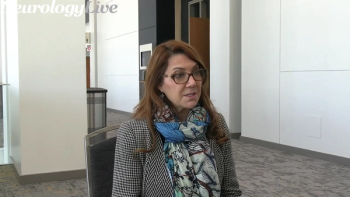
The professor in residence at UCLA Health discussed the critical considerations when deciding appropriate patients for gene therapies, specifically AAV vectors, in treating muscular dystrophies. [WATCH TIME: 4 minutes]

The professor in residence at UCLA Health provided clinical insight on the limitations of certain gene therapy vehicles for muscular dystrophies, and the need for better vectors that are more myotropic. [WATCH TIME: 3 minutes]
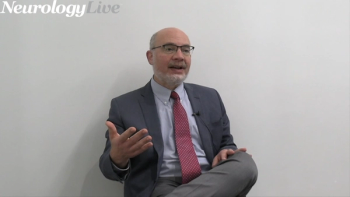
The senior scientist at Sunnybrook Research Institute in Toronto, Ontario, provided clinical insight on the advantages of a flipped classroom, and why neurology educators should consider this approach. [WATCH TIME: 2 minutes]

Judith Thompson, PharmD, MPH, CPHQ, rare disease population health strategy lead at UCB, discussed the association between social determinants of health and delayed diagnosis/misdiagnosis in myasthenia gravis.

The director of the myasthenia gravis clinic at Yale University discussed the therapeutic potential of inebilizumab, an FDA-approved treatment for NMOSD, in myasthenia gravis, based on data from the phase 3 MINT study.